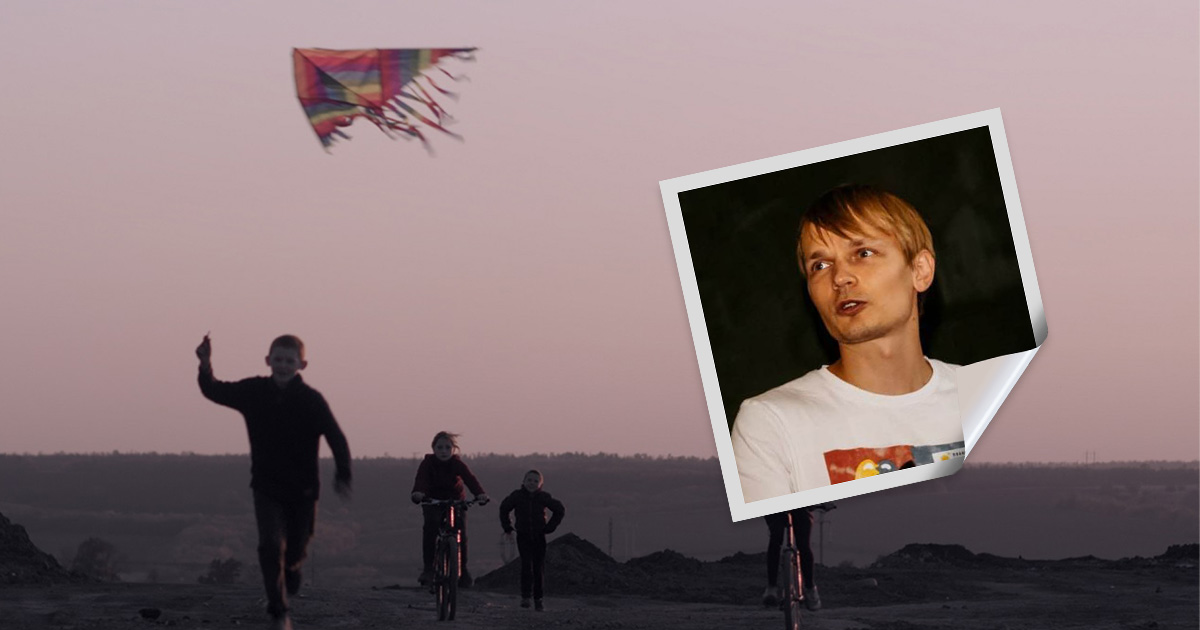"We all turned into Nastia": A Review and Analysis of the Documentary Drama Boney Piles (Terykony) by Taras Tomenko

On October 19, the Ukrainian documentary drama Boney Piles (Terykony) by director and screenwriter Taras Tomenko (Slovo House) was released in Ukrainian cinemas. It is a poignant film about life in front-line Toretsk and its young children who have become trapped in poverty and war. The film will be accessible to foreigners on streaming services after the cinema screenings are over.
The indescribably beautiful footage shot by cinematographer Mykhailo Liubarskyi (Luxembourg, Luxembourg) captures the extremely unfair life of the least socially protected segments of Ukrainian society. Children collect scrap, boil potatoes, shop at second-hand stores, sing carols, spend time at garbage dumps and in quarries, sit in TikTok, cry because of the war, play and quarrel — and it is impossible to look away from all this. It is life itself that falls on the viewer in Boney Piles, and this life breaks hearts.

The two main advantages of Boney Piles are the documentary plot (everyday life, perception of the world and the genuine naturalness of the long-suffering children of Donetsk region) and the highly artistic presentation of the material (some scenes of the film, such as bathing at a construction site or singing under the starry sky, are literally mesmerising to watch).
In the best traditions of the great Bengali humanist film classic Satyajit Ray and his iconic Pather Panchali (1955), Boney Piles has obvious moral and aesthetic goals — it tries (and succeeds!) to make the audience think about the bitter fate of the film's main characters, but also to enjoy the beauty of the Donetsk region.
Why are these children doomed to suffer? How did such a rich and beautiful land turn into ruins? When will all this poverty end and the war finally end ("I'll be buried and paid for," says one of the few adults in Boney Piles)? Such questions keep popping up in the minds of viewers, and they come from the heart, not the mind. Boney Piles is a deeply emotional film that plays on the audience's feelings.
The director Taras Tomenko speaks directly about the morality and aesthetics of Boney Piles, recalling Federico Fellini's statement that a cinema sheds light on the audience, not darkness, and quoting Alfred Hitchcock's words that "in feature films the director is God; in documentary films, God is the director" (in this regard, we recall a quote from Boney Piles itself, when an old woman asks the children: "Where do you come from?" and one of the children jokingly answers her: "From God"). Boney Piles is filled with hope, it strives to seek and find beauty even in the worst darkness of poverty and war.
"Boney Piles," says Taras Tomenko, "is a metaphor; the word itself means slag, from which everything valuable is collected." In the film, the Donetsk region looks like a desolate land, a terrible, hopeless purgatory, where an extra 40-50 UAH seems like a real treasure and freshly boiled potatoes are a gourmet dish. It's hard to watch Boney Piles without crying, especially when the children themselves tell us about their fate. But there are no words needed here! It is enough just to look into the bottomless eyes of these teenagers to assess the full depth of their suffering.

But what children they are! Charismatic, daring, inventive, independent, enterprising. And, of course, infinitely naive in their simplicity. "Where are you registered?" the passport office worker asks 14-year-old Nastia, the film's protagonist, at the passport office. "In Viber," Nastia answers sincerely. No one can tell you about war and poverty better than these children.
When Nastia explains on camera that "war is... it's shooting", your jaw drops because this seemingly simple idea is so piercingly true and scary.
Taras Tomenko points out that for the eastern regions of Ukraine, the war has been going on for a decade. They only started talking about this war, "noticed it everywhere", as Tomenko says, on February 24, 2022, but for children like Nastia or Sienia, it has been going on for an infinitely long time. Too long. But now, we can no longer turn a blind eye to it. Because today, "we have all turned into Nastia," as the director concludes.
The materials published in the Opinion section represent the individual author's opinion and may not reflect the opinion of the Svidomi online media.


